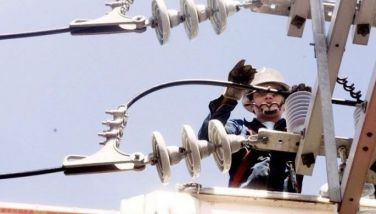Class 2021

Class 2020 got saved in the nick of time; Class 2021 will forever be scarred.
As the nation emerges from lockdowns, getting the youth up to par to the standards of a formal and structured learning system is one of the biggest challenges facing our country’s educators, especially since we still don’t know when this current pandemic will end.
For sure, teachers will have to rethink the old ways they had been schooled to teach, and adapt it to the demands of the new normal schooling. There will be a lot of experimentation as teachers herd their classes to finish the academic term.
Education in school year 2020-2021 will go down in our country’s history as one of the greatest disruptions in student learning. Pupils in this year, rich or poor, will likely have missed precious time and opportunity to learn, no matter how diligent their teachers and mentors are.
This year too, those who can afford online learning will gain far more than their peers who will have to rely on the more primitive forms of learning, like radio on air or television. The learning gap – and future employment opportunities – between the haves and have-nots will only widen.
Because we don’t know when this pandemic will end, the educational disparity for hundreds of millions will widen even more until a cure against the virus can be found – or when the virus just completely disappears, like what happened during the Spanish flu pandemic a century ago.
K-12: starting with a disadvantage
The students of K-12 levels already start the academic year with a disadvantage after losing a good three months of classes with the postponement of regular schooling to late August instead of early June. Three months of missed learning will be hard to recover whichever way you look at it.
Teachers are now busy distributing learning materials to enrolled students – some online, some through house-to-house visits, while taking stock of the new learning channels they can use.
The Department of Education (DepEd) has issued a learning continuity plan for its 25 million students that will chart how basic learning schools will behave during the pandemic, and until the traditional face-to-face classrooms can be safely restarted.
Aired radio and television programs will be available to students and teachers who do not have access to smartphones and the Internet. Others can make use of the DepEd Commons, an online learning platform that teachers and students can use.
Everyone, including parents, will have to work double time to make sure that students who pass academic year 2020-2021 will at least achieve the same quality of learning accomplished during previous years. The situation is less than ideal, but we all have to do our best.
Graduates in a recession
Higher education institutions (HEIs) under the supervision of the Commission on Higher Education (CHED) are in a different pickle though. Students here face far bigger challenges, with many eventually graduating in a world under recession, with fewer job opportunities, and careers that no longer matter.
CHED has largely left colleges and universities, both public and private, to come up with their own academic plans and flexible learning systems. The new adjusted academic calendar of August to December and January to May gives HEIs time to adjust, although not necessarily for the bigger task of ensuring that graduates are able to get the best jobs for the money and time they spent in learning.
For sure, maritime and tourism-related courses face bleak employment opportunities, and many of Class 2021 will need to look at other jobs far removed from what they had prepared for. HEIs will definitely have to step up their strategies to mitigate a potentially wasted year for affected students.
Many students previously enrolled in private colleges and universities are already thinking of going on a sabbatical as more families face tight financial constraints to support the more expensive tertiary level education tuition.
Correspondingly, with lower enrollment, private tertiary learning institutions will opt to reduce classes. Online learning in prestigious universities will offer better advantages to students for the very simple reason that their tuition fees can afford them to buy the best learning materials.
Meanwhile, lower-ranked colleges and universities will likely fall deeper into a “diploma mill” mindset as they grapple to survive markedly lower enrollment figures and higher operating costs that come with social distancing protocols and other coronavirus disease 2019 or COVID-19 health standards for schools.
What can we do?
Just as with the health sector’s crisis, education will need everyone’s help and attention. No one willing to lend a hand should be turned down. For starters, senior citizens are still a potent force that can be mobilized with teachers’ supervision.
What are your thoughts? Let’s all diligently prepare for schools’ opening day.
Facebook and Twitter
We are actively using two social networking websites to reach out more often and even interact with and engage our readers, friends and colleagues in the various areas of interest that I tackle in my column. Please like us on www.facebook.com/ReyGamboa and follow us on www.twitter.com/ReyGamboa.
Should you wish to share any insights, write me at Link Edge, 25th Floor, 139 Corporate Center, Valero Street, Salcedo Village, 1227 Makati City. Or e-mail me at [email protected]. For a compilation of previous articles, visit www.BizlinksPhilippines.net.
- Latest
- Trending






























